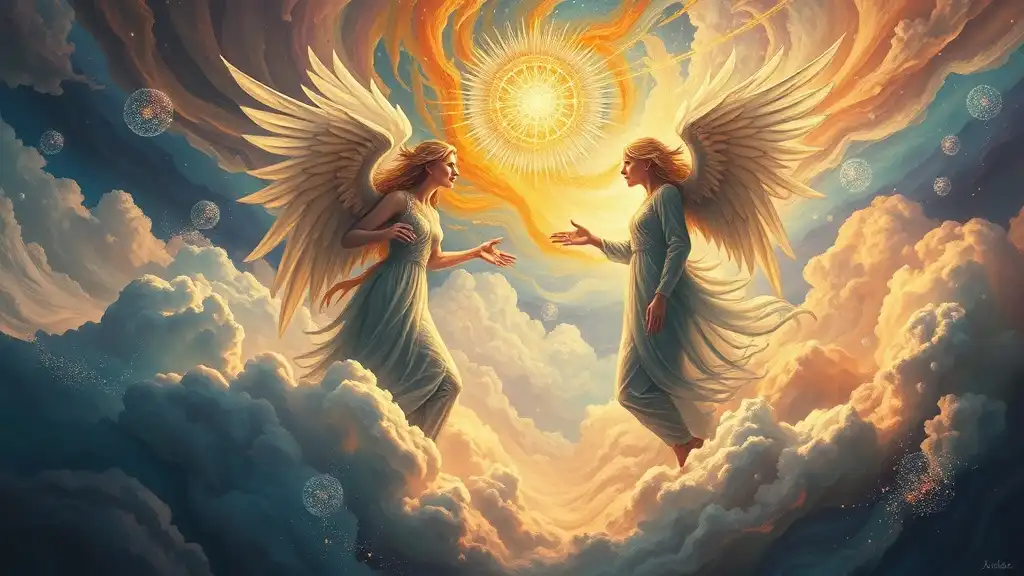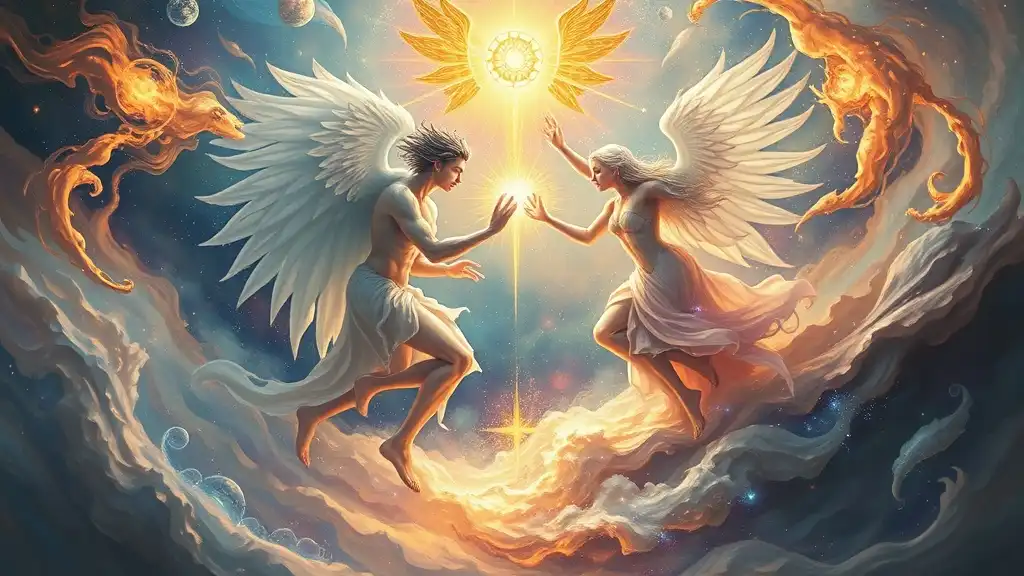Laughter has long been celebrated as a universal language that transcends cultures and beliefs, often acting as a bridge between the mundane aspects of life and the deeper, spiritual truths we seek. In our dreams, laughter takes on a particularly intriguing role, offering insights into our emotional landscape and spiritual journey. Understanding the spiritual meaning of laughing in a dream can pave the way for profound self-discovery and joy.
The Symbolism of Laughter
Understanding Laughter in a Spiritual Context
In many spiritual traditions, laughter is viewed as a powerful form of expression that aligns closely with joy and enlightenment. It signifies a release from tension and a momentary connection to a higher state of being. Laughter, in this sense, becomes more than a mere reaction—it is a celebration of life itself. Cultures across the globe recognize laughter as a way to commune with the divine, as it embodies a lighthearted spirit that encourages openness to experiences.
Psychological Perspectives on Laughter
From a psychological standpoint, laughter is intricately linked to our emotional well-being. It serves as a natural stress-reliever, triggering the release of endorphins, our body's feel-good chemicals. In dreams, laughter can be a reflection of our subconscious state, revealing deep-seated anxieties or highlighting moments of sheer joy. This duality can provide valuable insights—while dreams can evoke laughter as an expression of happiness, they may also juxtapose it against feelings of discomfort, prompting reflection on our coping strategies.

Analyzing Laughter in Dreams
Common Themes in Laughing Dreams
Dreams involving laughter are rich with symbolism. Some common scenarios one might encounter include:
- Infectious Laughter: Dreams where laughter is shared among friends or loved ones may signify unity and connection, suggesting that bonds are being strengthened in waking life.
- Self-Laughter: When you find yourself laughing at your situation, this may indicate acceptance and self-love. The dream could be urging you to employ humor in your daily challenges.
- Nervous Laughter: If the laughter feels forced or comes from a place of anxiety, it might reflect unresolved tensions that need addressing.
Contextual Factors Influencing Dream Laughter
The context surrounding laughter in your dreams is crucial for interpretation. Personal experiences, relationships, and current life situations play a significant role in shaping what laughter may symbolize. For example, if you're undergoing significant changes, joy-filled laughter may signify inner peace amidst transition, while laughter that feels uneasy could point toward fears of judgment.

Spiritual Interpretations of Laughing in Dreams
Laughter as a Sign of Liberation and Release
Dreaming of laughter often represents a spiritual release. It can indicate a desire to break free from worries or constraints that have been plaguing you. This liberation allows you to connect with a more profound sense of peace and authenticity. When you wake from such a dream, take a moment to reflect on what burdens you might need to let go of in your waking life.
Laughter as an Invitation to Joy
Dreams filled with laughter can serve as an invitation to embrace joy more fully. They remind you of the importance of lightness in your life. When laughter emerges vividly in your dreams, it suggests that the universe is nudging you toward a path of joy and playfulness. This is a call to connect with your inner child, to allow spontaneity and fun to flow into your daily experiences.

The Relationship Between Laughter and Other Dream Symbols
Color, Emotion, and Setting
Another vital aspect of laughing dreams is the colors and emotions that accompany them. Bright colors may signify elevated energy, suggesting that the laughter relates to positive, joyful experiences. Darker shades, conversely, could indicate underlying tension or conflict. The setting of these dreams also plays a role—laughter in serene, beautiful places may symbolize harmony in your life, while laughter in chaotic or uncomfortable settings might highlight areas where you seek relief.
Laughing in Relation to Other Common Dream Symbols
Dream elements often interconnect; therefore, laughter can have unique meanings when associated with other symbols. For instance, if you dream of laughing while flying, it might symbolize freedom and exhilaration, indicating you're soaring above challenges in your life. Alternatively, if laughter accompanies falling, it could signify a release of fear, exemplifying that letting go can be a joyful experience.

Practical Tips for Using Dream Insights
Keeping a Dream Journal
One effective way to explore the meanings behind your laughing dreams is by maintaining a dream journal. Record your dreams promptly upon awakening, noting not only the laughter but also the context, emotions, and symbols present. Over time, patterns and themes may emerge that offer deeper insights, illuminating the areas of your life that may be calling out for attention.
Meditation and Reflection
Incorporating meditation into your routine can enhance your understanding of dream symbols, especially laughter. Spend a few moments each day reflecting on your dreams, visualizing the laughter you experienced. Ask yourself what emotions arose and what messages might be hidden within that laughter. This contemplative practice allows for spiritual connection, fostering an understanding of joy as an essential element of your journey.

Conclusion
The spiritual significance of laughing in dreams is multi-faceted, revealing insights into our emotional well-being and spiritual growth. By recognizing laughter as a profound expression of joy, liberation, and connection, we can unlock its transformative power in our waking lives. Embrace the messages embedded within your laughter dreams, allowing them to guide you toward a more joyful existence. Laughter is not merely a reaction; it is a profound invitation to live fully and authentically.



















